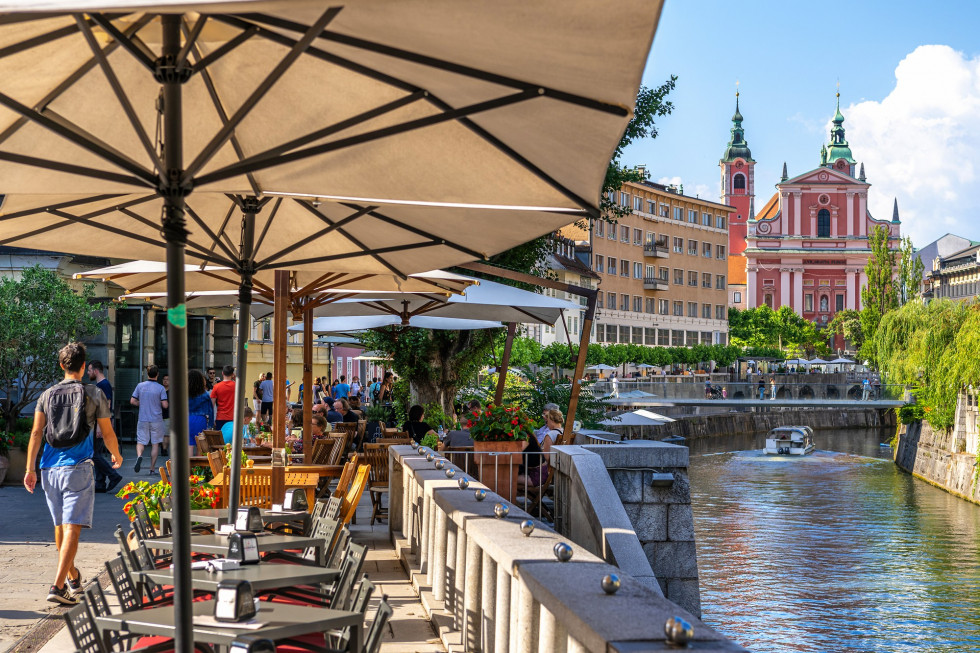The Government eases restrictions on travel between regions; terraces open in all regions this Saturday
Exceptions are determined in three statistical regions as anticipated for the yellow phase of easing of measures, including the implementation of hospitality activities within hospitality facilities and the provision of accommodation services in up to 30 rooms of accommodation facilities irrespective of their size. All educational institutions will open next week in accordance with the plan for the easing of measures. The prohibition on crossing municipal borders has been abolished and gatherings of up to a maximum of ten people are permitted. The Government amended the Ordinance on determining the conditions for entry into the Republic of Slovenia for the purpose of containment and control of the infectious disease COVID-19, adding new vaccines to the list of those that allow entry into the country without a referral to quarantine, along with certain other changes regarding the exceptions for entering the country. The Government also adopted the resolution on Slovenia’s long-term climate strategy until 2050.
The currently applicable exceptions are being extended in all statistical regions with the Ordinance on the temporary suspension of the sale of goods and services to consumers in the Republic of Slovenia, i.e. the relaxation of restrictions referring to service and trading activities remains in force. Furthermore, exceptions are determined in the statistical regions of Podravska, Koroška, Savinjska, Zasavska, Posavska, South-eastern Slovenia, Central Slovenia, Primorsko-notranjska and Gorenjska, as anticipated for the orange phase of the easing of measures. Under certain conditions, the implementation of hospitality activities such as preparing food and beverages and serving same on terraces and in the summer gardens of hospitality establishments and the provision of accommodation services at accommodation facilities of up to 30 rooms are permitted in the aforementioned statistical regions. The latter is only permitted if the clients are tested or provide evidence that they have recovered from the disease or have been vaccinated. The exceptions in the statistical regions of Pomurska, Goriška and Obalno-kraška apply as anticipated for the yellow phase of the easing of measures. Under certain conditions, the implementation of hospitality activity within hospitality establishments and the provision of accommodation services in up to 30 rooms of accommodation facilities irrespective of their size is permitted in these statistical regions. The implementation of both activities is only permitted if the clients are tested or provide evidence that they have recovered from the disease or have been vaccinated.
All educational institutions will open next week in accordance with the plan for the easing of measures. which means that lectures at universities and higher vocational schools will again take place. A hybrid model of implementation is recommended, i.e. implementation of studies while combining distance education and education in person in accordance with the abilities and needs of higher education institutions. Dormitories will also open, and music schools will be able to continue their activities in full.
The Ordinance on the temporary prohibition of gatherings of people to prevent the spread of COVID-19 only permits the gathering of no more than ten people, unless they are close family members or members of the same household. The organisation of public events and gatherings limited to a maximum of ten people is permitted (while observing the conditions stipulated by the Public Assembly Act and certain restrictions). Movement between statistical regions is permitted throughout the country.
By amending the Ordinance on determining the conditions for entry into the Republic of Slovenia for the purpose of containment and control of the infectious disease COVID-19, certain changes regarding general exceptions for entry into the country came into force. Persons arriving from countries or administrative units of countries on the red list are referred to quarantine at home, unless they submit the following evidence upon their entry to Slovenia:
- a negative PCR test for COVID-19 that is not older than 48 hours according to the date of the swab taken if it was carried out in an EU Member State, a Schengen Area Member State, the United Kingdom of Great Britain and Northern Ireland or the United States of America;
- a positive PCR test result that is older than 10 days, unless a doctor assesses otherwise, but which is not older than six months, or a medical certificate of recovery from COVID-19 if not more than six months have elapsed since the beginning of symptoms, or
- evidence regarding vaccination against COVID-19 (with the vaccines stipulated in the Ordinance) proving that a suitable period has passed since the vaccination.
Persons returning from deployment do not have to be tested upon their arrival to Slovenia if they submit a negative PCR test that is not older than 72 hours. The return deadline is also extended by three days for those who provide care and assistance to persons or perform maintenance work on real estate.
The Government adopted the Resolution on the Slovenian Long-Term Climate Strategy 2050. With the climate strategy, Slovenia sets a clear objective to attain net zero emissions or climate neutrality by 2050.


